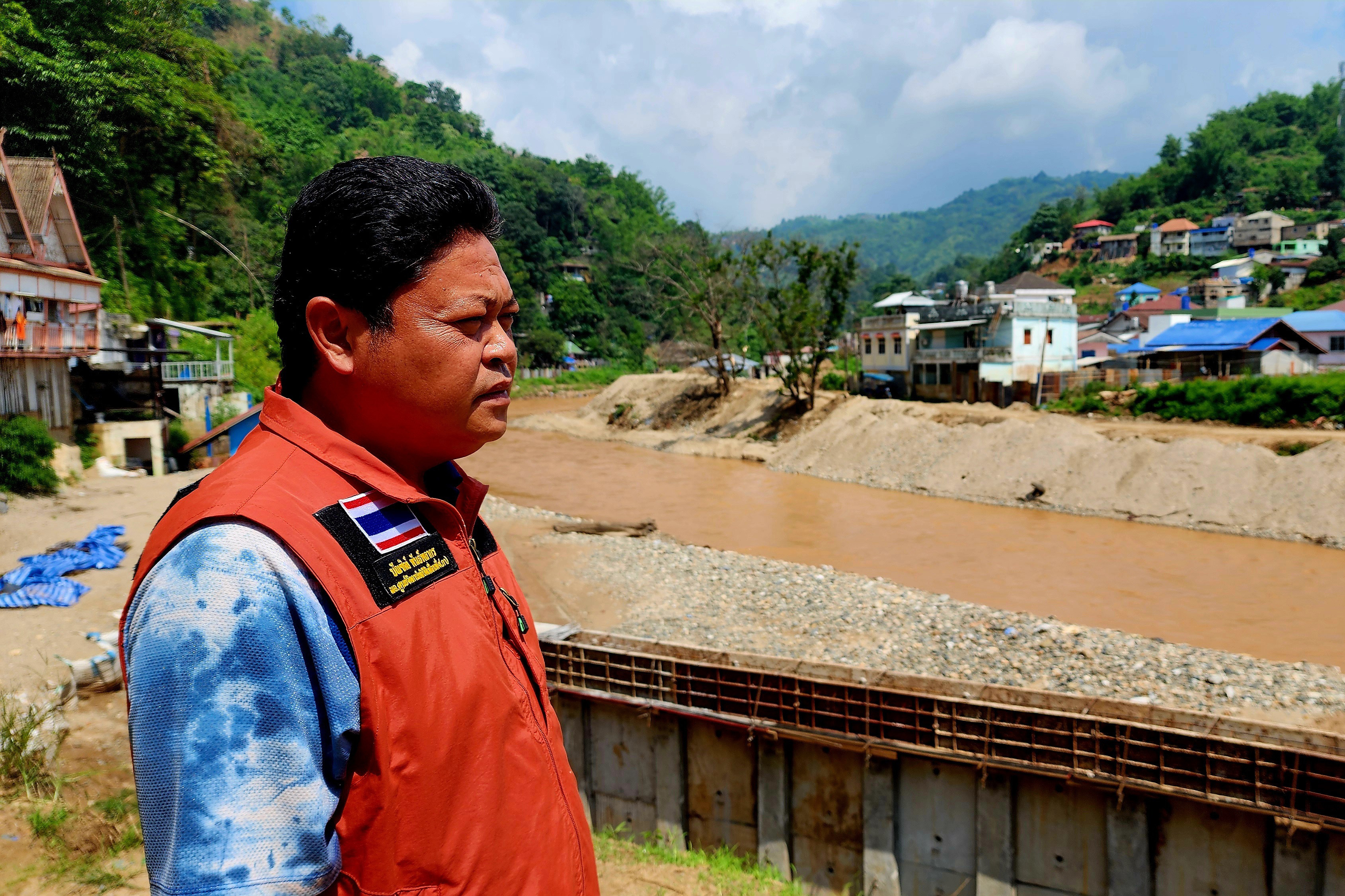Researchers find that songbirds sometimes get 'divorced'

A new study from Oxford University finds that a common European songbird sometimes divorces its partner between breeding seasons.
(Image credit: P. Pleul)

A new study from Oxford University finds that a common European songbird sometimes divorces its partner between breeding seasons.
(Image credit: P. Pleul)

One of the strongest earthquakes ever recorded struck Russia's Far East early Wednesday, sending tsunami waves into Japan and Hawaii and across the Pacific.
(Image credit: AP)

Mermaids, giants and huge eyes look up from the waters near Talamone, Italy. It's one fisherman's way of protecting fishing grounds from the damage of trawling nets. Artists' sculptures are sunk to the bottom of the Mediterranean sea along with concrete blocks to break the nets of the trawlers that devastate marine life.

The Trump administration proposes eliminating a 2009 finding that greenhouse gases endanger people. That would undermine the EPA's climate change regulations for power plants and cars.
(Image credit: Tierney L. Cross)

The Trump administration has effectively eliminated two rules designed to promote cleaner cars. Now, as the EPA suggests not considering carbon dioxide to be pollution, the last rule is poised to fall.
(Image credit: Justin Sullivan)

Much of the country is deep in the middle of a heat wave right now. And every summer, Duane Stilwell's town in Arizona seems to get hotter. It has him worried — and he's not the only one. Since 1980, the average number of heat waves in the U.S has doubled and the average length of a heat wave season has increased from 40 days to 70. Future summers, experts say, will be even hotter. But why exactly is that happening, and what can people do to protect themselves from the heat?
This episode is part of Nature Quest, a monthly segment that answers listeners' questions about their local environment. If you have a question, send a voice memo to shortwave@npr.org that includes it, your name and where you live. We might make it into our next Nature Quest episode!
Listen to every episode of Short Wave sponsor-free and support our work at NPR by signing up for Short Wave+ at plus.npr.org/shortwave.
(Image credit: Artur Debat)

The twilight zone of the ocean is a mysterious place. At 200-1000 meters below the surface, it's a tough place to study. That's why, during World War II, people reading sonograms from this zone were perplexed when it looked as if the ocean floor was moving up. Every day. And then back down again before dawn. In this latest installment of Sea Camp, we explore what this historical mystery has to do with the Earth's ability to cycle and store carbon in the ocean's watery depths.
SIGN UP FOR OUR SEA CAMP NEWSLETTER! WE WORKED SO HARD ON IT!
Interested in more ocean mysteries? Let us know at shortwave@npr.org.
Listen to every episode of Short Wave sponsor-free and support our work at NPR by signing up for Short Wave+ at plus.npr.org/shortwave.
We visit a nursery for corals off the Florida Keys. It's one of the largest in the world and meant to help replenish reefs that have suffered from high ocean temperatures.

Tree disputes between neighbors are common. So what happens when a tree is illegally removed from your property? And what recourse do you have?
(Image credit: Charlie Riedel)
Nations have a duty to act on climate change under international law — and if they don't, they could be held liable. That's the ruling of the top United Nations court.
Tree disputes between neighbors are very common. So what happens when a tree is illegally removed from your property? What are the legal limits on cutting down trees? Sacha Pfeiffer talks with Israel Piedra, a civil litigation lawyer in New Hampshire.
NPR's Michel Martin speaks with Christie Todd Whitman, former EPA administrator, about the future of the agency under President Trump.
NPR's Mary Louise Kelly talks with mycologist Aishwarya Veerabahu about the rapid spread of golden oyster mushrooms across North America. It's the subject of a new study authored by Veerabahu.
Studies show the populations of most North American shorebirds are declining. But the American oystercatcher found along the Atlantic and Gulf coasts is a success story.

For this week's Sea Camp, we're diving below the ocean's surface to explore the sunlight zone, the portion of ocean that's 0-200 meters deep. Here, we zoom in on some spineless inhabitants envied for their "superpowers." Marine biologist Drew Harvell tells us about stealthy sea slugs, sea stars with super strength and life-saving sponges.
Also, exciting news!! WE HAVE A NEWSLETTER! It lets you go even deeper with the marine research each week of Sea Camp. Sign up here!
Plus, check out the comic we commissioned to accompany this episode!
Want to hear more stories about underwater marvels? Email us and let us know at shortwave@npr.org.
Listen to every episode of Short Wave sponsor-free and support our work at NPR by signing up for Short Wave+ at plus.npr.org/shortwave.
(Image credit: Roberto Moiola/Sysaworld)

How do scientists monitor the populations of the threatened California red-legged frog? With careful listening and a little help from AI.
(Image credit: Bradford Hollingsworth)

China has nearly cornered the market in rare earth minerals, which are a necessary component to much of our technology today. But China sources some of those rare earths and other heavy metals from neighboring Myanmar. And the ramped up in production there is causing downstream environmental concerns in Thailand. We go to Thailand to understand the issue.

Bavarian palaces, imperial tombs in China and memorials to Khmer Rouge victims are among the sites being recognized by the United Nations agency.
(Image credit: Hellio & van Ingen/IBAP)
Abrahm Lustgarten says the undermining of science, and cuts to FEMA and NOAA, at a time when erratic weather is making disasters more common, should be "extraordinarily concerning" to us.

With 101 people still missing after the July 4 flash flood, the focus turns to local lakes, and what may be buried in them.
(Image credit: Martin Kaste)